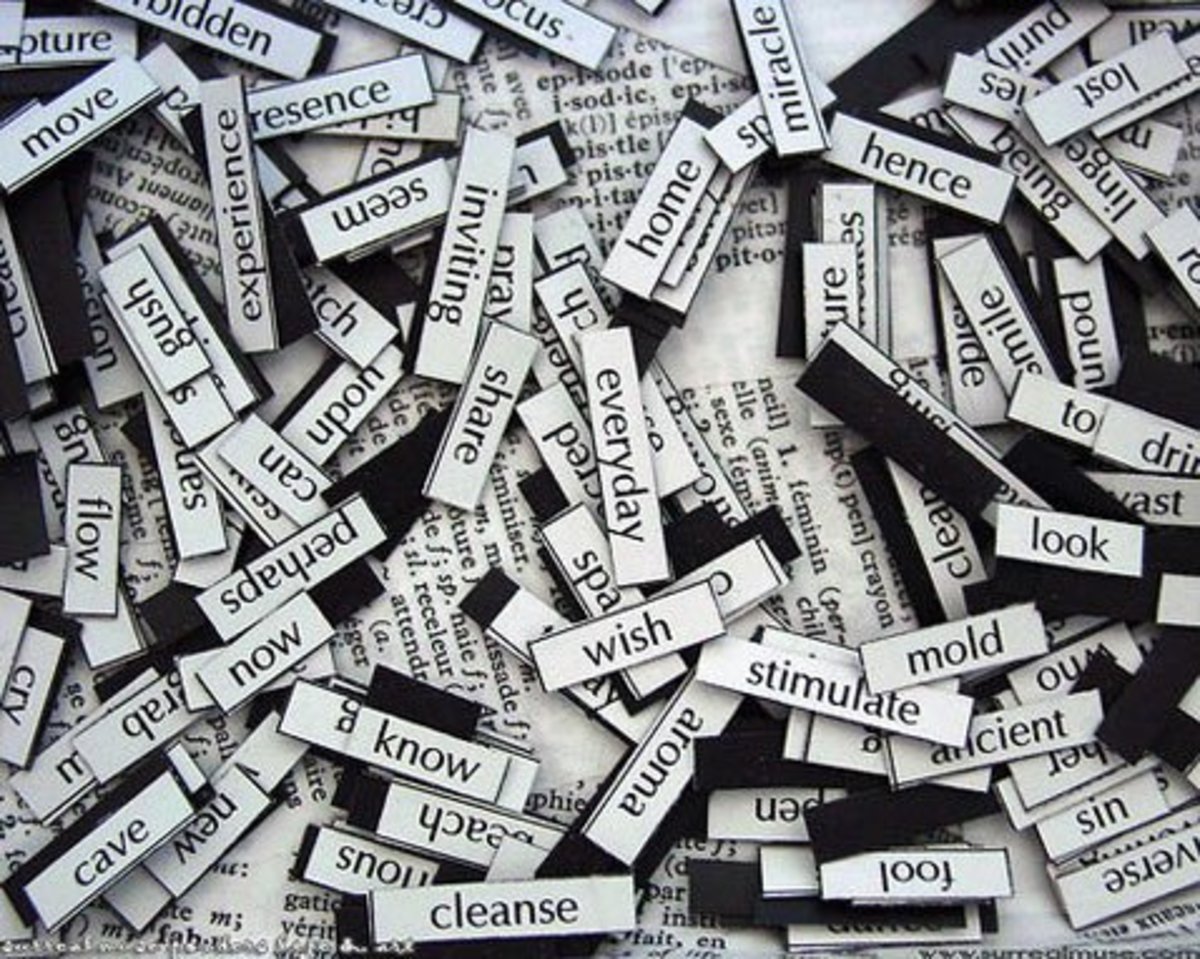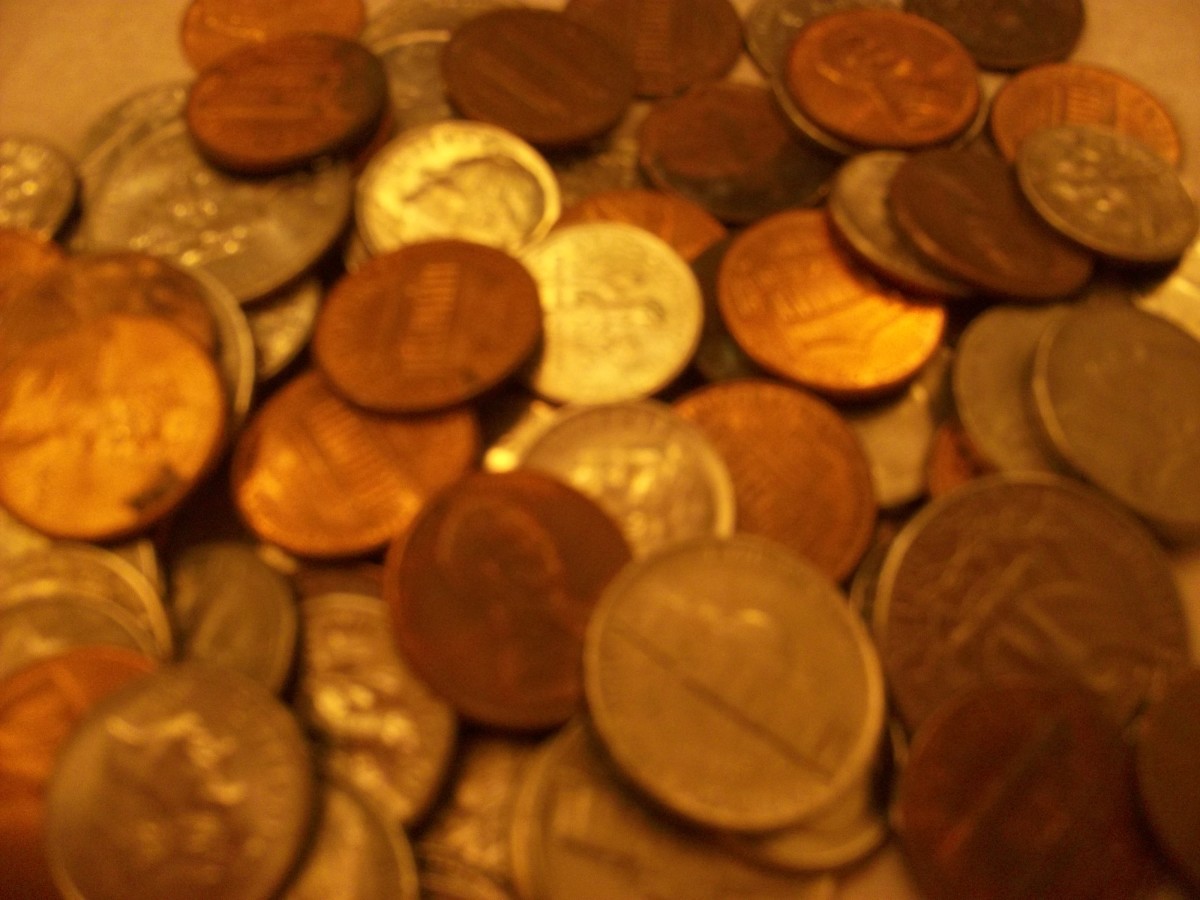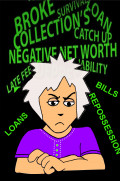10 Tips for Getting Out of Debt
Let's face it, the economy isn't what it used to be. Many people are realizing their money isn't going as far as it should and their finances should be better. That's the one of the few positive thing about this down economy, people are finally starting to focus on their financial lifestyles.
Even if you're still employed and haven't directly been affected by downsizing, layoffs, pay cuts, etc. and have been paying your bills on time, you may have noticed that those balances have not been going down much, maybe not at all.
What can you do?
You've already accomplished the first step in realizing that you're money situation needs improvement. The next step is to start tackling your debt problem. It's not that difficult, but you may find it a bit inconvenient at times. Here's a list of 10 easy actions that will help get you rolling in the right direction of becoming debt free.
1.) Cut Up Your Credit Cards
This should go without saying, but you MUST stop using your credit cards. You can't gain any traction if you continually swipe your Visa during everyday transactions.
At this point you've realized you are already in a hole, so it's up to you to stop digging deeper. Keeping your credit cards, especially in your wallet at all times, can only lead to further debt. Remove that temptation by running the plastic through your shredder. Even if you are making the minimal monthly payments on your card, you will at least be getting closer to paying it off if you aren't adding to it every month.
2.) Clip Coupons
I'm willing to bet that a large portion of your monthly income goes towards grocery shopping. Everyone has to eat, but there's no sense in over paying for food.
Online resources, such as Coupons.com, have a handy source of coupons that you can print from home. It's too convenient not to utilize. Another great source of coupons is generally your Sunday newspaper. You can easily find several dozens of coupons in their every week that can quickly add up if you just choose to use them. Think of it as free money, because essentially that is what it is.
3.) Stop Eating Out
You're already spending a small fortune on food from the grocery store, why would you go and pay extra for someone else to cook for you? Americans eat out several times a month, and each visit can easily cost $40 or more. It's much cheaper to cook at home than driving somewhere to pay $9 for a cheeseburger.
If you can't cut out eating out completely, at least consider cutting back on how may times your eat out a month. My wife and I generally never eat out more than once a month now, and it's generally because we have some out-of-town friends visiting. We have found that cooking together at home to not only be cost effective, but it also strengthens our marriage. We also generally prepare a much healthier meal than what we would've ordered at a restaurant.
4.) Have a Virtual Yard Sale
Everyone has stuff that has accumulated over the years that they aren't going to ever use again. What's the point of letting it set in a closet just to collect dust? Let it go.
Invest a few minutes into each item and list them on either Craigslist (completely free) or eBay (generally only a fee if you sell an item). Take a couple of pictures of whatever you want to get rid of, upload them to your choice of selling platform, write a decent description (be honest), and wait for someone to buy it. It's too easy not to do...especially if all you do when you get home is watch TV.
The trick to this is to not spend the money you receive from the sales on another toy/useless item. Take your new found proceeds and put it all towards a particular debt. You may even be able to completely pay off one or more debts just by selling your old items.
5.) Visit the Library
I personally love to read. After graduating college, I made a pledge to myself to try to read at least one book a week. That was all fine and dandy, but books aren't cheap. You can easily spend $20 or more on a hardback book (my personal choice for reading, never liked paperbacks for some reason). I was spending nearly $100 a month just on books that I would most likely only read once then place on my bookshelf never to be touched again (I believe this is how most hoarders get started).
After analyzing my cash flow, I noticed the amount of money wasted on books. I say wasted because I could generally get the exact same books at my local library for the phenomenal price of FREE!
If you're a real serious reader, but can't get to your local library on a regular basis, you may want to consider investing in an Amazon Kindle (or better yet, ask for one for Christmas or as a birthday present). Amazon has thousands of free books that you can download straight to your device in a matter of seconds without ever leaving the house. Most modern books can even be purchased on the Kindle generally cheaper than in printed format.
6.) Sell Your Car
This may sound extreme, but the average car payment is over $400 a month. Imagine how much debt you could wipe out if you could throw an extra $400 at it every month. Chances are you don't even need that $30,000 SUV you have sitting in your garage.
Consider selling off that depreciating asset and purchasing a smaller vehicle that you can pay cash for. Also consider that gas prices aren't getting any lower any time soon, so instead of that SUV that gets 17 miles to the gallon (if you're lucky) replace it with a vehicle that can get closer to 30 mpg on a regular basis.
Your car insurance premiums will probably also decrease with a less expensive vehicle.
Total Money Makeover
7.) Have a Written Budget
Very little in this world can successfully be accomplished without a written plan. Your money is no different. Every month you need to tell your money where to go, and you must write it down and stick to it. A beautifully planned budget does you no good if you don't follow it.
The first couple of months of your budgets are probably going to be a pain. But after a few tries you will find how much you need to budget for groceries, gas, etc. You'll also be able to visualize where your money is going and see what nonessentials can be cut.
8.) Build an Emergency Fund
While you're making your budget, set aside a little bit every month for savings. You'll need to have $1,000 in your saving account for emergencies.
Life happens, Mr. Murphy will show his ugly head, and when it happens you may be tempted to use your credit card to fix it. That won't be the case if you have $1,000 sitting around for just such an occasion.
A thousand dollars doesn't sound like much, but it will generally cover whatever comes your way. Be it an unexpected doctor visit or a car repair, the emergency fund will help you cover the problem without driving you deeper into debt. Don't touch this money unless it's indeed for an emergency. Christmas shopping and birthday presents aren't emergencies!
When an emergency happens and you have to dip into the fund, start budgeting to replenish the fund back to $1,000 as soon as possible.
9.) Use Your Tax Return Wisely
If you've overpaid your taxes and are expecting a return, use that money wiser than the government does. Don't use the money to go on vacation or as a down payment for a new car (a depreciating asset).
Use this money to fill your emergency fund if it's not already at $1,000 and take what's left and put it towards your lowest debt. If your emergency fund is already maxed, use every penny towards your debts.
10.) Follow Dave Ramsey
If you've never heard of Dave Ramsey, or have heard of him but don't much about him or his radio show, do yourself a favor and start listening to his program. Chances are that a local talk radio station in your area will carry his program during the course of the day. If not, don't worry, you can easily listen to his shows anytime via the Dave Ramsey website.
If you still can't manage to get access to his radio show (he also has an hour long show on cable), have no fear. Go to your local library and borrow a few of his books. He has several books on personal finance that are geared directly towards getting out of debt and living a debt free lifestyle.
His books provide a very down-to-earth approach to money management that, if followed, will lead you to a prosperous life. Even if you read one of his books and choose not to follow his advice, the worst that has happened is that you've read a well written book. You've got nothing to lose, except that pile of debt with your name attached to it.
Dave Ramsey on How to be Financially Successful













